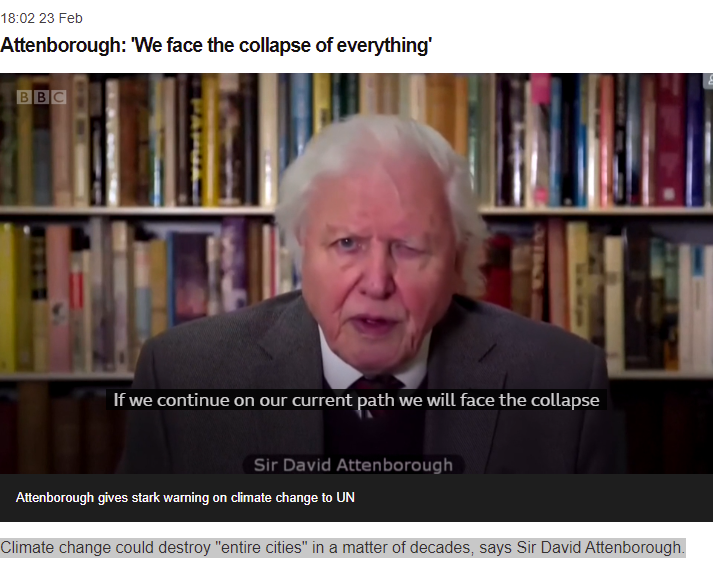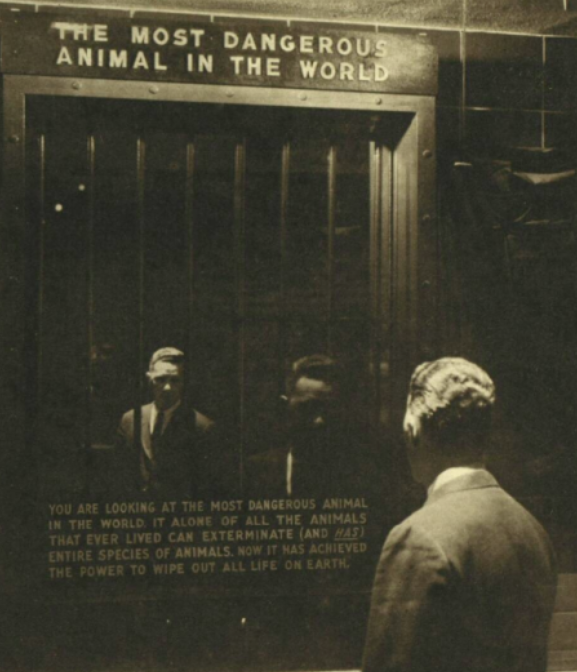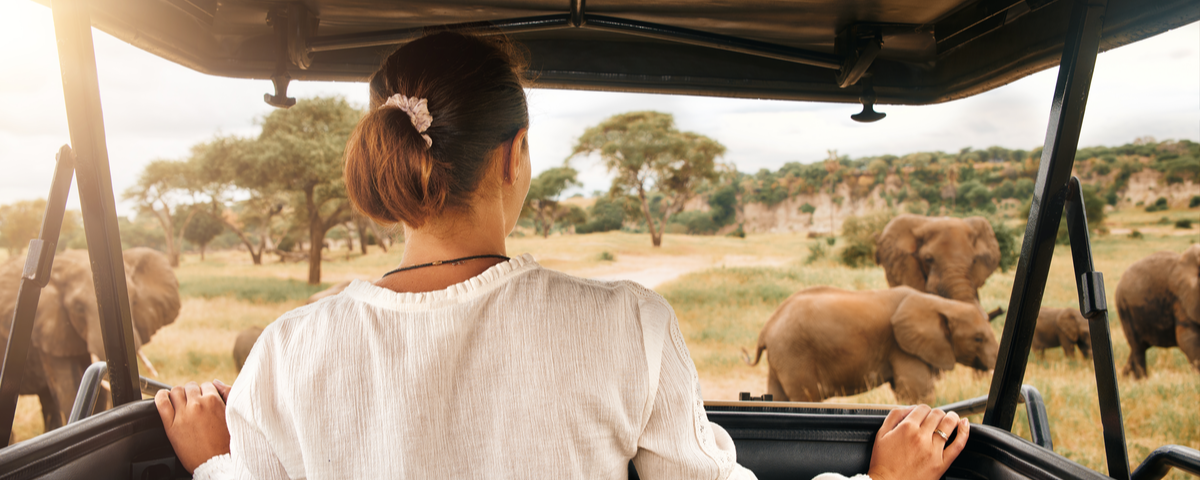David Attenborough in his most recent series A Perfect Planet has celebrated our Earth’s biodiversity and documented the natural forces – volcanos, the Sun, weather and oceans – which have shaped Earth and created its biodiversity. In the final film of the series Attenborough focuses on the new force threatening our planet, us, you and me and the 7.8 billion others. Attenborough reveals that humans are changing our world so rapidly that we are affecting our planet’s life support systems.
More recently, he has spoken about the urgency of addressing climate change and biodiversity loss. Climate change could destroy “entire cities” in a matter of decades, says Sir David Attenborough.

There have been at least five mass extinctions, most of which have been caused by the carbon dioxide emitted by cataclysmic volcanic eruptions. “Humans are now acting like a super-volcano, releasing carbon dioxide at an even greater rate than the prehistoric mega-eruptions that extinguished life in the past. Globally, we now release 100 times more carbon dioxide into the atmosphere than all of Earth’s volcanoes combined”.
This iconic image from 1963 elicits a wry smile of recognition before we hastily move on to business as usual. The exhibit told visitors: “You are looking at the most dangerous animal in the world. It alone of all the animals that ever lived can exterminate (and has) entire species of animals. Now it has the power to wipe out all life on Earth.”

Industrialisation and the agricultural revolution were fuelled by coal, oil and natural gas. Non-renewable, all emitting greenhouse gases when burnt to give us power. We have been consuming fossil fuels and natural resources at an unsustainable rate and converting land from supporting biodiversity and absorbing water to monocultural industrial agriculture.
Since 1950, the global population has grown from 2.55 billion to 7.8 billion. That is a three-fold increase in one western lifetime. The Worldometer data reveals the seven-fold increase starkly. We hear so often that the global population is naturally stabilising, but the UN expects Earth’s population to reach 8bn in 2023, that is the year after next, and 9bn in 2037 when someone born in 1950 will be 87. During their lifetime the world’s population will have increased 3.5 times.

Clearly, the fate of biodiversity is not only our industry’s responsibility. But there are significant ways we can make a difference.
- Tourism matters to conservation: COVID has stopped almost all tourism to national parks and protected areas revealing how much tourism contributes to the conservation of habitat and species and how dependent conservation is on the tourist dollar. Whether we are sending tourists or not, we can encourage our clients to maintain their links with conservation and the people who conserve it. See, for example, the appeal from Ol Pejeta. You will know of many more; by supporting them, we can demonstrate to our clients our commitment to their cause and avoid being seen just as retailers of their efforts.
- Ecotourism is not good enough: We must take responsibility and distance ourselves, and our industry, from the ‘take only photographs, leave only footprints’ ethic. Wealthy tourists from countries that have hunted out and destroyed the habitat that used to support charismatic mega-fauna travelling halfway around the world to see the dangerous game others live with and not recognising that they need to pay handsomely for the privilege is not acceptable.
We need to ensure that we make a more significant contribution to conservation, often priced as a merit good and with entrance fees locals can afford. We need to pay more and certainly enough to ensure that the protected area makes more from our visit than it costs to permit us entry and mange us and our impacts. Each visit should make a significant net positive contribution to the conservation of habitat and species. Even footprints cause damage, and someone has to clean up after us.
- Local people need to benefit far more: We are able to travel to see the charismatic wildlife only because local people are willing to live with it. Snakes are reckoned to kill over 100,000 people each year, crocodiles over 1,000, and elephants and hippos each over 500, and lions around 20. The wildlife also raids crops, and local people are prevented from taking wood, thatching grass, honey, fruits from the protected areas. The costs of living with wild nature are high: deaths and injuries, damaged crops and the opportunity costs of being denied access for foraging. Often people are displaced without compensation from the protected area when it is gazetted. They lose, we gain.
We can increase the benefits to local communities living with the wildlife we facilitate travel to see by creating opportunities for travellers and holidaymakers to engage respectfully with artists, crafters, storytellers, food and drink producers, and farmers and to purchase goods and services from them. We can assist with their marketing and include visits in the itineraries, and we can mentor them to improve the quality and price of their products, enhancing their livelihoods.
- Work to counter the illegal trade in wildlife: The Convention on International Trade in Endangered Species of Wild Fauna and Flora (CITES) provides a regulatory framework intended to enable international wildlife trade that is sustainable and discourage trade that is not. Our industry needs to do far more to draw to our clients notice to the illegality of purchasing many wildlife products, the damage each transaction causes and discourage petting and visiting unethical sanctuaries and zoos.
- Avoid creating wildlife prisons: Wildlife needs to be able to move beyond its protected enclaves, to migrate and to avoid inbreeding. Local authorities need to prevent accommodation and tourism infrastructure from imprisoning wildlife
Biodiversity features in the Responsible Tourism Platform for the next decade coming shortly, see the panel discussion hosted last November at WTM, London:



Thats a really brilliant article and a must read for serious Travel & Tourism policymakers and thoughtleaders
Thank you for sharing, great article
That is a truly splendid article and an unquestionable requirement read for genuine Travel and The travel industry policymakers and thought leaders…
I also love the wildlife photography. and your post is awesome, Thanks for sharing this info…